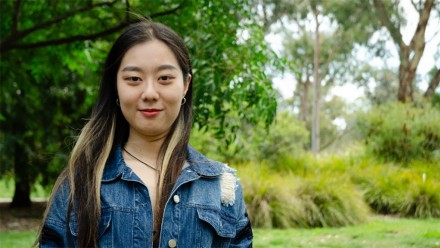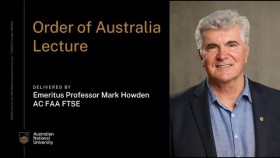Find your ‘why’ with the Master of Energy Change
Jirui Tie was on track to work in Strategic Management. She had completed her Bachelor of Economics, was working with some big technology companies, and had started the process of applying for further study in the area. But when she was asked why she wanted to study strategic management in her application interviews, she had no answer. “I found that I could not answer those questions. I was missing why I was there."
While searching for something that felt more meaningful to her, Jirui found an article on the United Nations website about how community-scale renewable energy in remote rural areas was helping women getting access to electricity and change their lives. Reading this changed Jirui’s life too, as she finished the article “....at that exact second, I suddenly felt like that is what I want to do.”
Jirui started looking for a degree that would help her work towards this goal. With an economics rather than an engineering background, she was not eligible for most renewable energy programs. When she came across Master of Energy Change offered by The Australian National University (ANU), which is designed to bring together people from different disciplines across engineering, economics, law, and policy to address the need for an energy revolution, she knew it was perfect. She had always loved physics and mathematics in school but felt that as a girl she had been discouraged from pursuing a career in these spaces. She asked herself why she should let this dictate her decisions. “I was doing something that I didn’t like, and it was time to change.”
Jirui is now three quarters of the way through her degree, and still loving it. She has recently transferred to an Advanced degree so that she can incorporate a research component into her studies and has developed a passion for solar photovoltaics that she hopes to take forward into a PhD. “Due to my background I never expected to join a research project about photovoltaics and engineering. It is already so over my expectations, and I am excited!”
The degree has opened other opportunities for Jirui as well. She and another Master of Energy Change student were recently selected to attend COP28 in Dubai with the Young Future Energy Leaders program coordinated by the Khalifa University. Jirui was unimpressed with the displays of renewable technology she saw, as she felt that more interesting and advanced technologies were discussed in her classes at ANU. However, she was able to learn a lot from the other students who had gathered for the program. Several students were focused on AI (Artificial Intelligence) technology, and for Jirui it was a wonderful experience to bring together these ideas with her focus on renewable technologies to find shared solutions.
Jirui sees her future as being in a lab, working on the material science of silicone solar cells. She believes that this is the best way to contribute to her passion of “girls helping girls.” She knows that there must be someone working on the ground in community energy organisations, someone working in industry to lower costs, and someone working in the lab to make the technology more effective.
“If I am good at lab things, then why shouldn’t I focus on that, contributing my best efforts to develop more effective solar cells? Everything is in a circle, and everyone focuses on their different parts.”
Jirui’s advice for students considering the Master of Energy change is clear. “The Master of Energy Change is an opportunity for someone who wants to have a change of direction in their life.” She reflects on other students in her cohort, who have come from engineering backgrounds but want to learn more about the policy and economics of the issue, who are working with government and need a better technical understanding, and herself, who had an economics background but wanted to develop her passion for engineering. Having such a diverse cohort means that students can learn not just from their classes, but from each other.
Jirui wants to use her studies to support other women. "...With solar and a battery, you can support a village. That is the best tool for me to make my connection to women in other areas,” she said.











